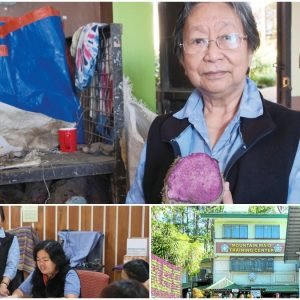
Dear PAO,
My aunt, Shiela, has been a Filipino immigrant living in the United States of America for over 10 years. She is now retired and receives a monthly pension of $2,000. Occasionally, she returns to the Philippines for short stays. Using her pension, she purchased three condominium units in Quezon City, which she is renting out for P25,000.00/month each unit. Can you enlighten me if she is taxable for the P75,000.00 income that she earns every month? Aunt Shiela believes she is exempt from paying taxes because the money used in buying the said units was sourced outside the Philippines.
Ronalyn
Dear Ronalyn,
Income tax is defined as a tax on all yearly profits arising from property, professions, trades, or offices, or as a tax on the person’s income, emoluments, profits, and the like. It is a tax on income, whether gross or net, realized in one taxable year. (Commissioner of Internal Revenue v. Comelec, et al., GR 244155, May 11, 2021, Associate Justice Mario Lopez)
A non-resident Filipino citizen is someone who holds Filipino citizenship but resides outside the Philippines for the majority of the year. This could include individuals working abroad, studying overseas, or living abroad for personal reasons. The taxation of non-resident Filipino citizens is anchored in the National Internal Revenue Code (NIRC) of the Philippines, as amended, particularly under Section 23(B). This section specifies that income received by non-resident citizens from sources within the Philippines is subject to Philippine income tax.
“Sec. 23. General Principles of Income Taxation in the Philippines. Except when otherwise provided in this Code:
“(A) A resident citizen of the Philippines is taxable on all income derived from sources within and without the Philippines;
“(B) A nonresident citizen is taxable only on income derived from sources within the Philippines;
“(C) An individual citizen of the Philippines who is working and deriving income from abroad as an overseas contract worker is taxable only on income derived from sources within the Philippines: Provided, That a seaman shall be treated as an overseas contract worker if he (1) is a citizen of the Philippines, and (2) receives compensation for services rendered abroad as a member of the complement of a vessel engaged exclusively in international trade;
“(D) An alien individual, whether a resident or not of the Philippines, is taxable only on income derived from sources within the Philippines;
“(E) A domestic corporation is taxable on all income derived from sources within and without the Philippines; and
“(F) A foreign corporation, whether engaged or not in trade or business in the Philippines, is taxable only on income derived from sources within the Philippines.”
Under Section 22 paragraph (E) of the NIRC of the Philippines, the term “nonresident citizen” means:
1) A citizen of the Philippines who establishes to the satisfaction of the Commissioner the fact of his physical presence abroad with a definite intention to reside therein.
2) A citizen of the Philippines who leaves the Philippines during the taxable year to reside abroad, either as an immigrant or for employment on a permanent basis.
3) A citizen of the Philippines who works and derives income from abroad and whose employment thereat requires him to be physically present abroad most of the time during the taxable year.
4) A citizen who has been previously considered as non-resident citizen and who arrives in the Philippines at any time during the taxable year to reside permanently in the Philippines shall likewise be treated as a non-resident citizen for the taxable year in which he arrives in the Philippines with respect to his income derived from sources abroad until the date of his arrival in the Philippines.
5) The taxpayer shall submit proof to the Commissioner to show his intention of leaving the Philippines to reside permanently abroad or to return to and reside in the Philippines as the case may be for purposes of this Section.
In the situation of your aunt, she is considered as a non-resident citizen. She is liable to pay income tax on her monthly income sourced from the renting of her three condominium units in Quezon City. Section 42 in relation to Section 23 of the NIRC provides that the rental income from property located in the Philippines is considered as income derived from within the Philippines. The contention of your aunt that she shall not be taxed is not correct even if the capital used in buying the said units came from a source outside the Philippines.
We hope that we were able to answer your queries. Please be reminded that this advice is based solely on the facts you have narrated and our appreciation of the same. Our opinion may vary when other facts are changed or elaborated.
Editor’s note: Dear PAO is a daily column of the Public Attorney’s Office. Questions for Chief Acosta may be sent to [email protected]







